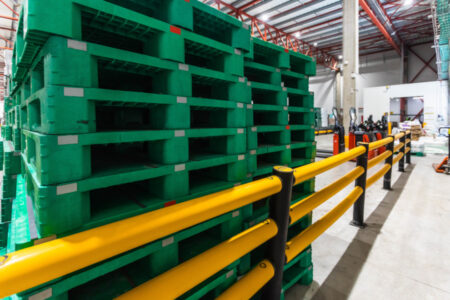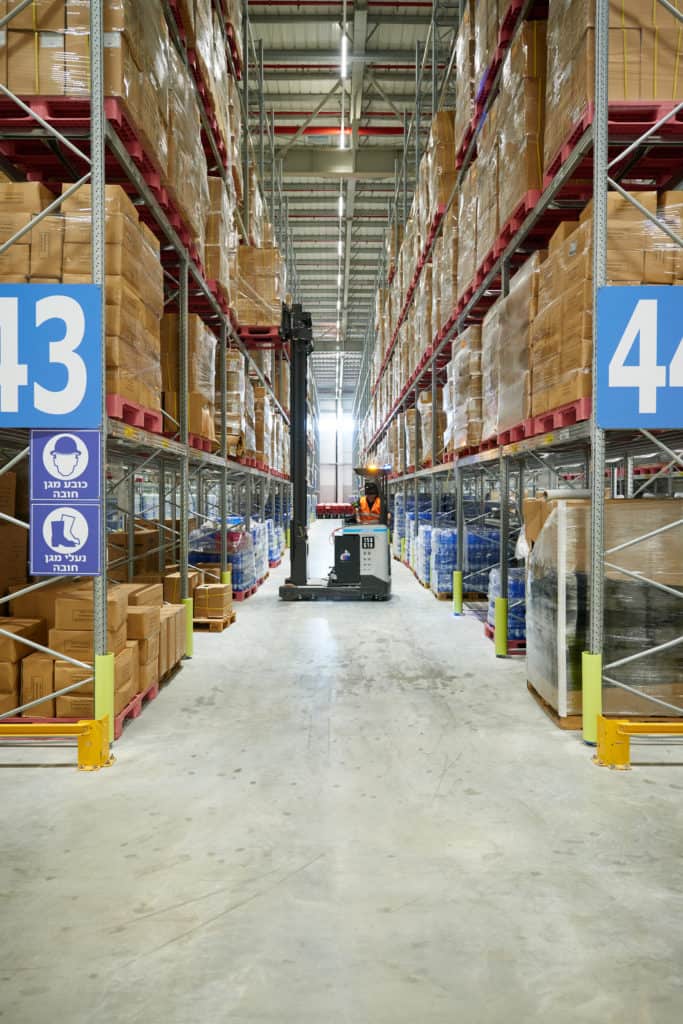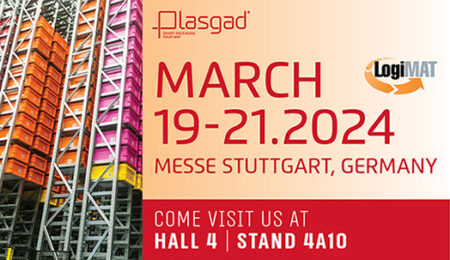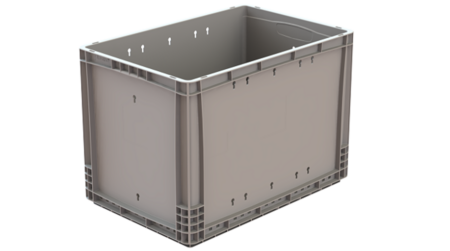
Power Pallet instead of wooden pallet
The Rami Levy retail chain started out as a small grocery store. Today, it is the largest retail chain in Israel, whose goal is to provide customers with a broad range of products at the lowest prices in the area where a branch is located.
A Rami Levy owned subsidiary is responsible for all the agricultural produce that reaches its branches. Menashe Kadouri, the Purchasing Manager for Rami Levy– activity in the Vegetable segment was looking for an alternative solution to meet the new logistics center’s needs. This initial conversation led the two companies to collaborate in an interesting and challenging development process that took approximately one year and concluded with the Power pallet.
At the beginning of the process, the sales team was presented with the minimum requirements the pallets needed to meet. This included durability in performing multiple work rounds and ensuring a comprehensive solution at every stage of the work cycle:
- Workplace functionality when loading produce
- Easy and convenient processing at the packing house
- Optimal performance at the company’s logistics center, including the ability to load up to 1,000 Kg on the high rack \ of racking
- Arrival at supermarkets – rapid unloading, whilst ensuring that pallet weights are not too heavy for field personnel
- Return to the logistics center and repeating the cycle
Beyond these requirements, some further key points were included: The 1100X1100 dimensions adapted to the vegetable crates, preventing plastic crates from sliding off the pallet and the challenging ratio of pallet weight and load capabilities – the pallet must carry heavy loads (dynamic and static) whilst still maintaining a lightweight.
The R&D team began intensive work on creating a suitable crate. The process included a tour of all of the customer’s working locations and discussions with the teams at each stage to achieve a thorough understanding of the needs involved. This included several experiments and field tests until the desired result was achieved.
According to Michal Moses, Product Manager at Plasgad’s R&D Department: “The customer works mainly with “2/3” and “45” crates. However, there are a variety of cardboard boxes and other types of packaging that are used and loaded onto the plastic pallets, making a safety rim for the pallets is out of the question. Therefore, we created sockets on the surface of the pallet to support the base of the plastic crates (like lego cubes) and prevent slipping. All without the need for a safe rim.
To meet the demands of racking, while satisfying the maximum weight requirements for the pallet, we chose a design that combines steel rods inside the pallet’s plastic structure. During the design stages, we conducted experiments and analysis to establish the optimal plastic pallet that, together with the rods, will give the required strength to the pallet.
After receiving the product, we conducted experiments to ensure it complies with all the customer’s requirements and stringent safety standards. Working on the pallet was interesting and challenging and has opened new doors in the development of additional Euro pallets of this type in Euro and Iso “
Today we are pleased and proud to say that the serial production of the crate has begun in June 2018 right after the mold arrived at the production site in Israel.




